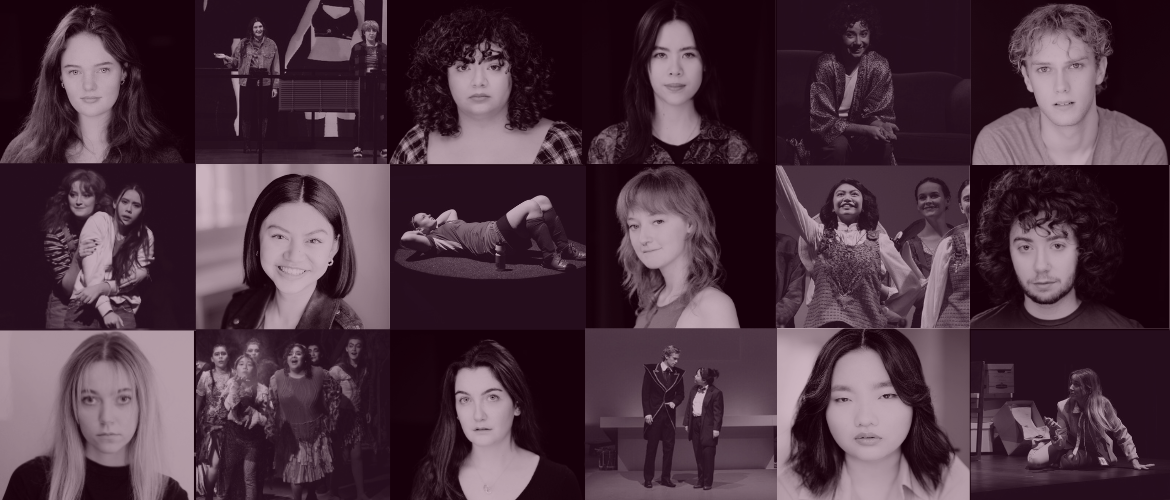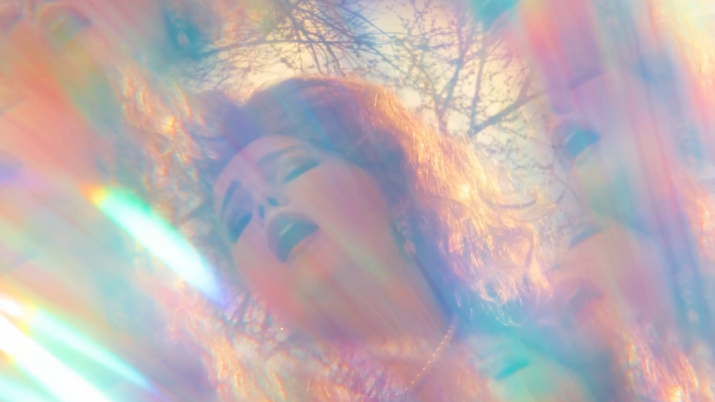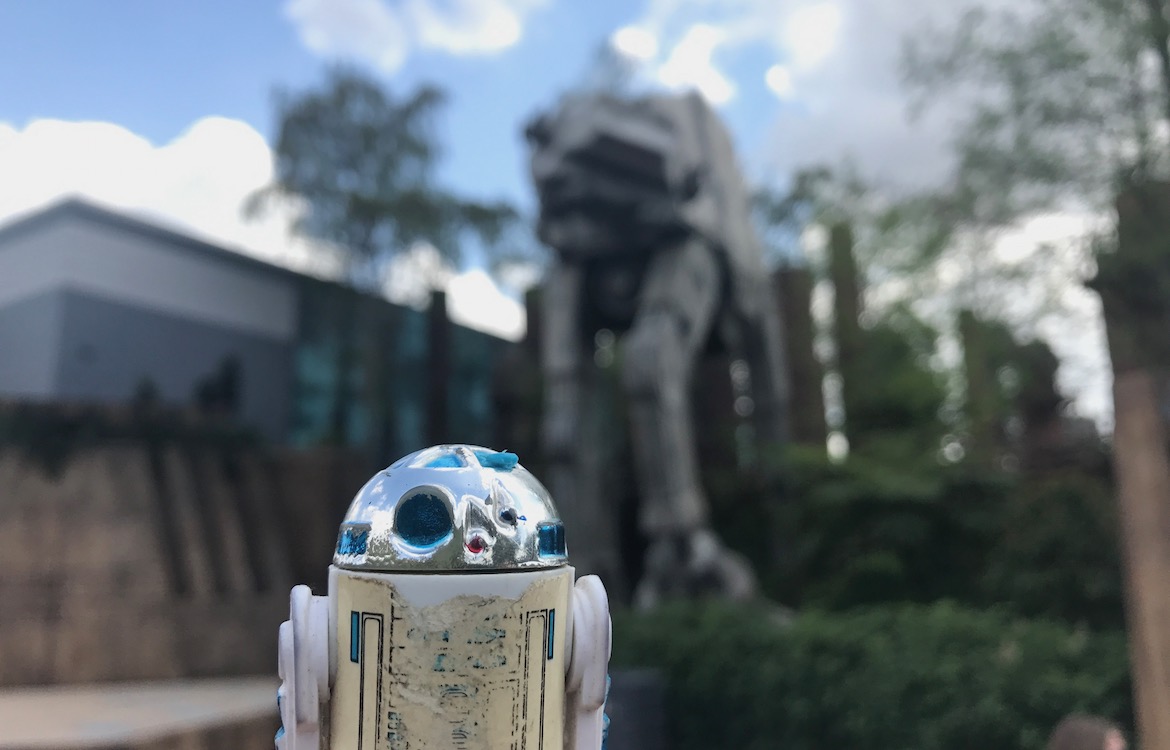

Photo by Nicholas Harrison
by Jiejun Wu
Please note that this editorial deals with the subject of childhood abuse.
UBC Theatre and Film is proud to announce the publication of alumnus Nicholas Harrison’s new book, Safe Space: A True Story of Faith, Betrayal, and the Power of the Force.
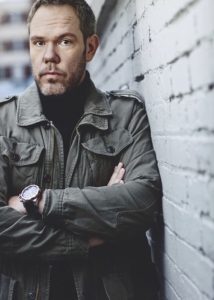

Nicholas Harrison is a professional fight director, actor, stunt performer and author currently teaching at Capilano University. He studied at UBC under the supervision of Emeritus Professor Jerry Wasserman, graduating in 2012 with his PhD in Theatre Studies. He has since worked with the Department of Theatre and Film as a fight director on several productions.
Nicholas’ memoir, Safe Space, is a shocking, heartbreaking, yet hopeful exploration of his childhood sexual abuse and how Star Wars gave him hope when he needed it the most.
The idea for the book emerged from a research paper that Nicholas wrote as part of his PhD at UBC. He used his personal relationship to Star Wars as a case study on how popular culture could have a healing effect on individuals who have experienced childhood trauma. After receiving his PhD, Nicholas posted the original paper on Facebook. “Another UBC alumnus, Ken Hollands, reached out to me and told me that the paper would make an excellent show.”
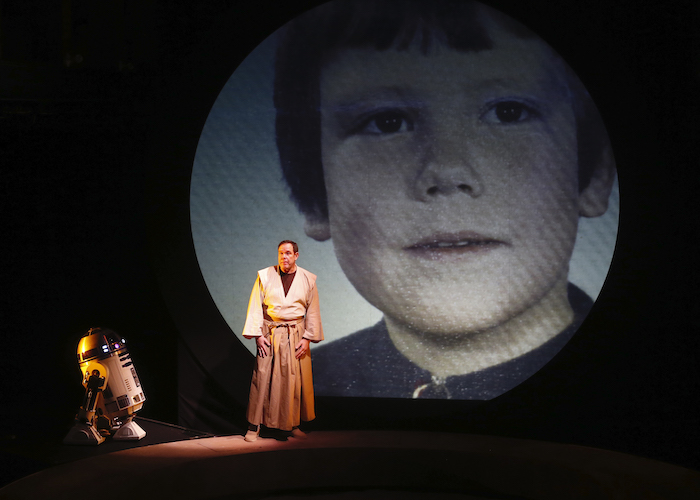

Nicholas’ solo show, How Star Wars Saved My Life, premiered in 2017 at Performance Works on Granville Island. Ken Holland became the show’s technical director and production manager, with Some Assembly Theatre’s Valerie Methot serving as dramaturg and director. How Star Wars Saved My Life was later nominated for a Jessie Richardson Award.
However, even with the show’s success, Nicholas felt like he wasn’t done telling his story. “I thought about publishing a book,” he explains.
“The reason I wanted to keep speaking out was to inform people how trauma can affect people long after the suffering.”
Challenges emerged on the way to publication. Due to the subject matter, traditional publishers were afraid to take the book on, and Nicholas did not have the funds to pay for a professional editor. In the face of these obstacles, Nicholas’ community came together in support of his story.
“My dear friend, Collette Berg, who is also a UBC alumna, reached out and offered her editing services for free. At the same time, Pia Guerra, a comic book artist and creator of Y: The Last Man, offered to do the cover art after having seen the play. Jerry Wasserman provided a testimonial on the back cover, as did my friend, New York-based actor Alan Cumming. Finally, Ernest Mathijs wrote a contextual essay for the book, which became the introduction. It has UBC all over it,” said Nicholas.
A BFA student at the time he was working towards his PhD, Collette Berg has been friends with Nicholas for a decade. She read the original essay he had written at UBC, and was originally slated to stage manage How Star Wars Saved My Life in 2017. In 2020, she had just completed a Professional Editing Certificate from SFU, with the goal of becoming a memoir editor for authors in the performing arts.
When Collette learned that Nicholas was looking for an editor, it seemed like a perfect fit. “Working with Nic on Safe Space has been incredibly fulfilling, both professionally and personally, and I’m so glad the stars aligned to put us on this path together.”
“Nic was silenced for decades—by his abusers, by the Church and by society. Now we need to listen.”
Professor Ernest Mathijs, whose research interests include cult films and genre cinema, first met Nicholas as a PhD student at UBC. He remembers long conversations with him about fandom and theories around fan audiences. “When the study of fandom started in the late 1990s, with the work of Henry Jenkins, Martin Baker and Janet Staiger, a lot of energy went into demonstrating that an active adaptation of fan activities can have emancipative and activist purposes. Think of the charity work of Harry Potter or Buffy fans, or the way Judy Garland’s fans influenced representation by campaigning for gay rights.”
Ernest’s introduction to Safe Space positions fandom in context and draws attention to how experiences of fandom intertwine with fans’ personal life trajectories. “The importance of Nic’s book is in showing how a shared experience with fans can help ‘place’ a personal trauma and lead to healing. It is a testament to fan power.”
“Lacerating and inspirational, Nic Harrison’s narrative of his abuse and recovery is filled with moments of terror and joy. The wonder is not that he survived, but that he survived with such love, equanimity, and imagination. He credits Star Wars but I credit him: Jedi, luminous being. Read this book and feel the Force.”
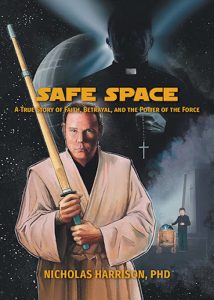

“The voices of survivors are important and need to be heard. So many people feel silenced by the shame they carry with them. It’s debilitating, but it’s important for survivors of abuse to break that silence. In my case, it allowed me to grow from victim to survivor to Jedi.”
Safe Space: A True Story of Faith, Betrayal, and the Power of the Force is available now through FriesenPress and Amazon.
If you are a survivor of sexualized violence or know someone who is, the AMS Sexual Assault Support Centre (SASC) offers support, education and empowerment for people of all genders. In addition to emotional and short-term crisis support, the SASC offers advocacy planning, referrals, and resources and support groups.
